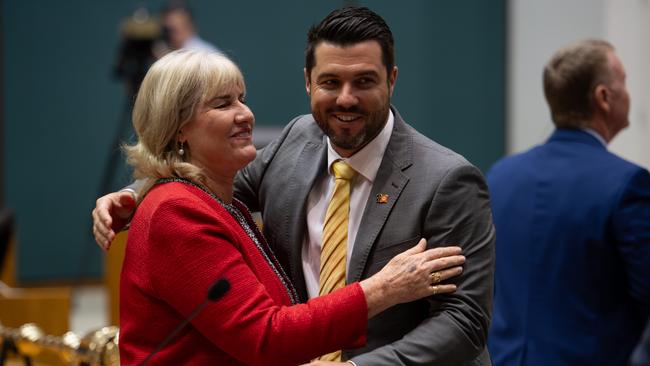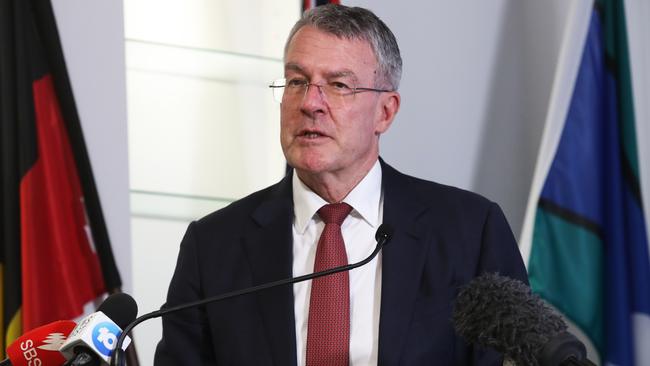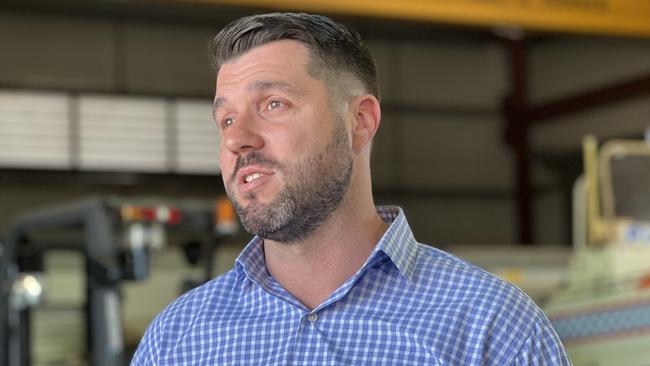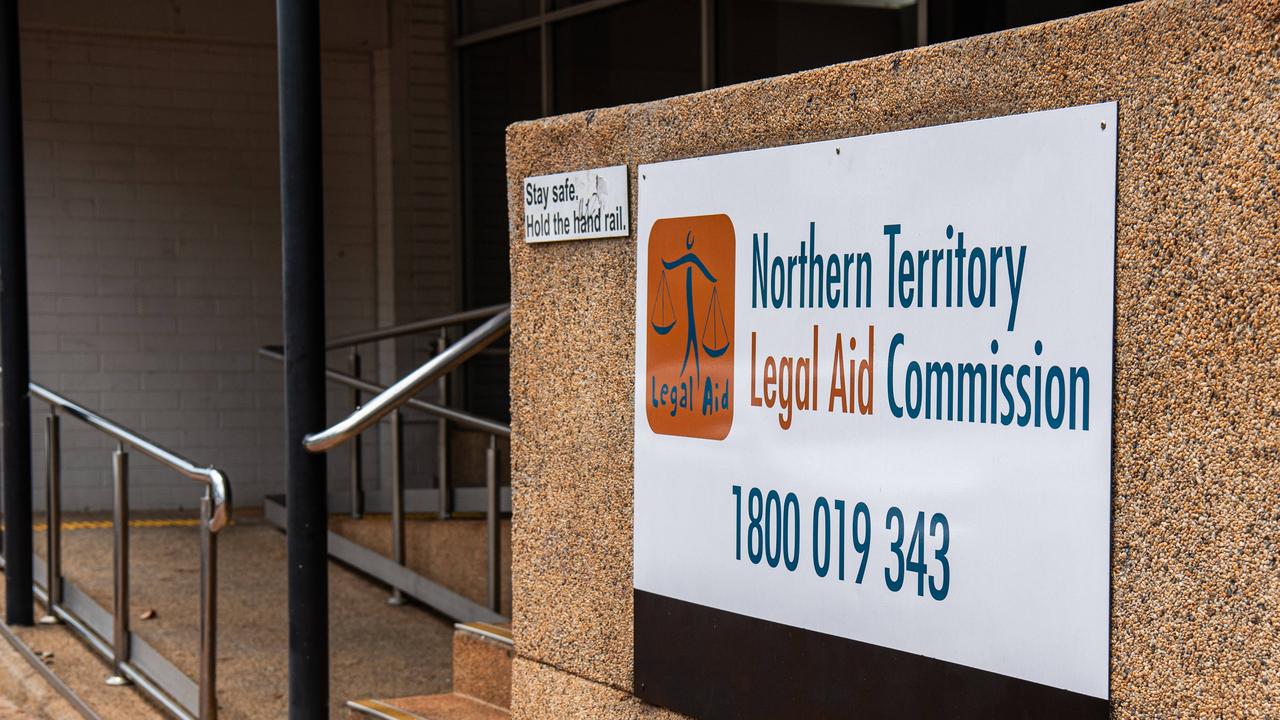Cunningham: Allowing government to criminalise words a very dangerous game to play
The true test of a free-speech advocate is to stand up for the speech you disagree with, writes Matt Cunningham.

News
Don't miss out on the headlines from News. Followed categories will be added to My News.
Police Minister Brent Potter is, by his own admission, a dickhead.
His boss, Chief Minister Eva Lawler, thinks Potter – who shared racist, homophobic and misogynistic content on Facebook – is an idiot.
But is he a criminal? That’s the question we might like to ponder as the Federal Government pushes ahead with new hate speech legislation.
According to a report this week in the Sydney Morning Herald, Attorney-General Mark Dreyfus is drafting laws that will impose criminal penalties for vilification based on a person’s race, sexuality, gender, disability or religion.
This is the latest incarnation in a trend of Australian governments seeking to legislate against language that might be deemed offensive.
The NT Government has already gone down this path, passing legislation last year that makes it unlawful to offend, insult or humiliate someone of the basis of personal characteristics such as gender, race or sexuality.
The federal government’s proposal goes a step further, and would make such an act a criminal offence.
There are inherent problems with these laws. Most particularly, the fact that what is and isn’t offensive is subjective.

Every long-term Territorian will have a met a newly-arrived southerner from the inner suburbs of a big city who expresses their offence at the terms long-grasser or blackfella, only to learn these are the terms used by some Aboriginal Territorians to describe themselves.
In fact, we might wonder if our society would be a better, more harmonious place today if we’d just heeded the advice of the Warumpi Band from the 1980s.
“Blackfella, whitefella, it doesn’t matter what your colour, as long as you, a true fella.”
It was the Territory’s version of Martin Luther King’s “I have a dream” speech, which urged future generations to judge people not by the colour of their skin, but by the content of their character.
Modern society, however, has shifted away from this philosophy.
As African-American author Coleman Hughes remarked during an interview on US chat show The View earlier this year: “In the past 10 years it has become very popular in the name of anti-racism, to teach a kind of philosophy to our children, and in general, that says your race is everything. And I think that is the wrong way to fight racism.”
Hughes blames social media for growing racial division in our society, pointing to data from 2013 that showed most Americans – black, white and Hispanic – believed race relations were improving.
The same could not be said today, either here or in the USA.
“Republicans like to blame Obama, it wasn’t his fault,” Hughes said.
“Democrats blame Trump. It was actually technology. We all got social media and smart phones and we had videos being promoted in the algorithm that were unrepresentative, and it created this impression that racism was on the rise when in fact it had been on the decline for decades.”
It’s this impression that has led our governments to believe they need to start creating laws around what people can and can’t say.

While opposition to such laws has recently been limited to those on the conservative side of politics, there’s been a shift.
The issue was raised on the ABC’s Q and A program on Monday night, and the progressive panellists were in furious agreement these proposed laws were a bad idea.
Maher Mughrabi, the features editor at The Age, was asked if a word like “intifada” might fall foul of these laws, given many Jewish people find it deeply offensive.
He argued the word’s literal mean is “to rise up”, and it was therefore absurd a government might consider its use a criminal offence.
Similar arguments were made about the phrase “from the river to the sea”, which many Jewish people see as a call for genocide.
Mughrabi and Indigenous artist and human rights activist Deborah Cheetham Fraillon wondered if we were to ban “from the river to the sea” we might soon also ban the phrase “always, was, always will be Aboriginal land”.
They clearly believed this was a dangerous and slippery slope we were embarking upon, and the well-to-do types in the audience gave them a nice warm round of applause for their thoughtful and considered views.
We can only wonder why these same progressive voices were so hard to find when The Australian’s late cartoonist Bill Leak was being hauled through the legal minefield of section 18C of the Racial Discrimination Act over a cartoon of an Aboriginal father some had deemed offensive.
The true test of a free-speech advocate is to stand up for the speech you disagree with.
That’s not to say there shouldn’t be consequences for the things people say, write, post or share. During the coronial inquest into the death of Kumanjayi Walker we’ve seen careers ruined and reputations destroyed over racist comments.
And while many people believe he should have lost his job, there’s no doubt Brent Potter’s standing in the community was lowered after the revelations about his Facebook posts.
But allowing a government to criminalise words, even if they are words we find repulsive, is a very dangerous game to play.





